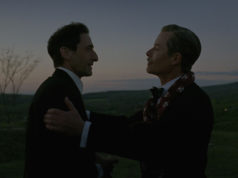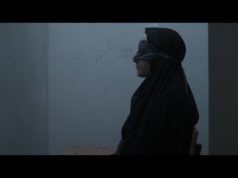Oh, this can’t be good. The reports coming out of Iran say that movie director Jafar Panahi has been detained at an undisclosed location along with his wife and 15 people at his house. Panahi is a supporter of Iranian opposition leader Mir Hussein Moussavi and the anti-government protests that have rocked Iran recently. The Iranian government says his arrest has nothing to do with his politics. Say it with me: “Yeah, right!”
Panahi’s arrest is part of a wider-ranging crackdown on dissidents. I’m no good at reading the tea leaves when it comes to news reports coming out of Iran, so it’s hard to know at this point how much trouble he’s in. Still, the politically motivated arrest of such a great artist is disquieting.
If you’ve never seen one of his films, you should track down The White Balloon, one of the first Iranian movies to draw widespread attention in America. This enthralling 1995 work is about a five-year-old girl going to buy a goldfish for the traditional Iranian new year celebration. There’s a lot of subtly embedded commentary about gender and race relations in Iran (one of the characters the girl meets is a soldier from southern Iran, where the people tend to have darker skin than people from other parts of the country), but you don’t have to know anything about that to appreciate this gentle little story told from a child’s perspective.
If you have trouble finding The White Balloon (whose original U.S. distributor no longer exists), you’ll have an easier time finding his most recent film Offside, a funny movie about a group of Iranian women trying to sneak into a stadium to watch the national soccer team play in a World Cup qualifying match. In Iran, women are banned from attending sports events. The country is mad about soccer, unlike many other nations in the Middle East, and so the ban has in the past been a rallying point for women. The movie points out all the tortured logic behind the ban, one character noting that foreign women who travel to Iran to support their teams are allowed into the stadiums. Panahi didn’t fake the game-time atmosphere. He filmed his actors on the streets and around the stadium during an actual game between Iran and Bahrain. (The Iranians won, sealing their berth in World Cup 2006.)
Offside is another good starting point for newcomers, whereas moviegoers with more experience with Iranian films should check out Panahi’s Crimson Gold and The Circle, which are rather bleak but also do their part to raise consciousness about the inequities in Iran and how people deal with them. Like many of his compatriots, Panahi makes stunning films when he’s allowed to. Surely it’s a measure of the regime’s barbarity that they actively work to keep down such a vibrant film culture. Pray to Allah that Jafar Panahi and his fellow artists will emerge stronger for their experience.











